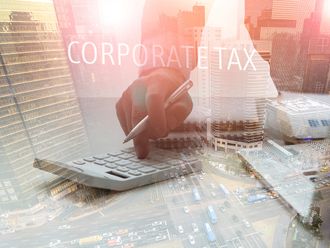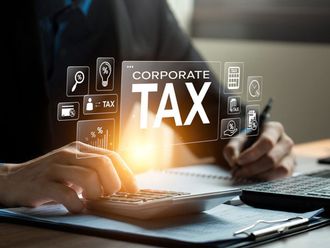
UAE’s free zone businesses are grappling with understanding the scope of the preferential tax rate of 0 per cent under the corporate tax framework.
One particular qualifying activity – the distribution of goods - is of special interest as it covers many trading companies operating from within free zones. The ministerial decision 265/2023 specifies the scope of the ‘distribution of goods or materials in or from a designated zone’.
Discussions with many free zone companies reveal that they believe that the scope of distribution activity only covers customers, who are essentially resellers. That for a designated zone distributor making B2B sales such as capital equipment to infrastructure companies or spare parts used by vehicle leasing company for its own fleet, the 0 per cent tax rate will not apply.
In absence of any specific clarification from the tax authorities, a question arises if such a restrictive view of the ‘distribution activity’ is valid?
Intended beneficiary
Corporate tax is a form of direct tax, i.e., on the income of the taxpayer. Unlike VAT, the burden of corporate tax cannot be passed on to customers. Except for distribution activity, none of the other qualifying activities seems to be conditional upon the actions of a third-party.
Could a direct tax relief, intended to benefit taxpayers themselves, be contingent upon the actions of a third-party, i.e., customers, whether they are domestic or overseas?
Control over customer actions
Clarity is needed if the preferential tax rate depends upon the actual resale by such customers. Or whether an intention to resell would be a sufficient compliance. In either scenario, an acceptable mechanism to validate customers’ actions and/or intention is needed to have tax certainty.
The period within which the customer should resell the goods bought from a designated zone distributor is not expressly specified. Goods purchased during a financial year (tax period) need not be resold within the same year or subsequent years.
A designated zone supplier may find it difficult to follow up the actual sales cycle of icustomers, domestic or overseas. Or seek evidence of resale to achieve certainty on its corporate tax liability for such financial year.
The customers of a designated zone distributor could be located within or outside UAE since the preferential tax rate is not dependent upon their location. To ensure compliance by overseas customers could pose practical challenges.
Another practical issue relates to non-compliance. Being a direct tax, could corporate tax be imposed on customers, especially those overseas, for not reselling the goods? Alternatively, could a designated zone distributor be penalised, including disqualification from preferential tax rate for 4 years, for the actions of customers who are outside its control?
Usage of goods vs. customer profile
I often come across companies that do not comprehensively review the tax code. In the field of tax interpretations, the expression ‘a customer that resell/processes ‘such’ goods’ is distinct from the expression ‘a customer that resell/processes ‘those’ goods’.
Whether the scope of distribution activity refers to the actual usage of the goods sold by a designated zone supplier or just the profile of customers selling such goods could impact future audits?
Clarity on the scope of distribution activity would bring certainty to designated zone suppliers to plan their B2B business operations and financial projections.
Beneficial recipient
The preferential tax rate is not applicable on income from ‘excluded activities’, which includes transactions with natural persons. Such exclusion ensures the preferential tax rate is not offered B2C transactions outside the B2B value chain.
The ‘beneficial recipient’ condition for customers also applies for supplies within free zones, but not on supplies to the mainland. Some designated zone supplier may appoint a limited-risk distributor to overcome such B2B or B2C challenges. Whether such arrangements will trigger anti-abuse rules remain a pertinent question.
Among a long list of issues that merit a detailed analysis, the above aspects highlight the task ahead for distribution companies based in free zones.













